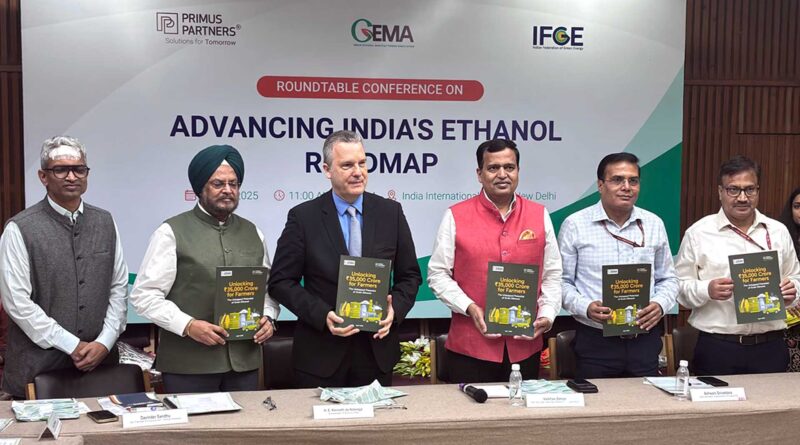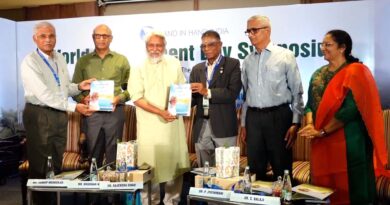Grain Ethanol Industry Holds Key to Boosting Farmers’ Income
Mumbai: India’s ethanol industry has achieved a significant milestone by reaching nearly 20% ethanol blending in petrol ahead of the 2025 target. To further shape the sector’s future, a high-level roundtable discussion was held, bringing together senior government officials, ethanol producers, policymakers and industry leaders.
- Ethanol Blending Success: India has demonstrated its capability to scale clean energy solutions rapidly, achieving 19.6% blending in January 2025.
- Economic Benefits: The ethanol blending initiative has saved over Rs. 1.08 lakh crore in foreign exchange, substituted nearly 185 lakh metric tonnes of crude oil and reduced 557 lakh metric tonnes of CO₂ emissions.
- Grain Surplus: India has a surplus of around 165 lakh metric tonnes of grain that could be used for ethanol production without causing scarcity.
The Thought Leadership Report identifies grain-based ethanol, particularly from maize and surplus grains like broken rice, as a key lever for sustainable expansion. The report projects that 165 lakh metric tons of surplus grain could be utilized annually to generate over Rs. 35,000 crores in direct payments to farmers.
However, the sector faces critical challenges:
- Feedstock Availability: Rising maize costs and inter-sector competition.
- Ethanol Procurement Pricing: Not keeping pace with feedstock cost increases.
- By-Product Margins: Falling margins for Distiller’s Dried Grains with Solubles (DDGS) impacting distillery viability.
The roundtable and report call for urgent reforms, including:
- Scaling Up Maize Cultivation: Across the country.
- Dynamic Pricing: For grain ethanol to address feedstock cost increase.
- Uninterrupted Supply: Of damaged, broken and surplus FCI rice until maize production ramps up.
- Promoting Domestic Market Linkages: For ethanol by-products like DDGS.
“We understand the current challenges of India’s grain ethanol story industry. There is a roadmap being planned; it will address multiple issues,” said Ashwini Srivastava, Joint Secretary, Department of Food and Public Distribution.




